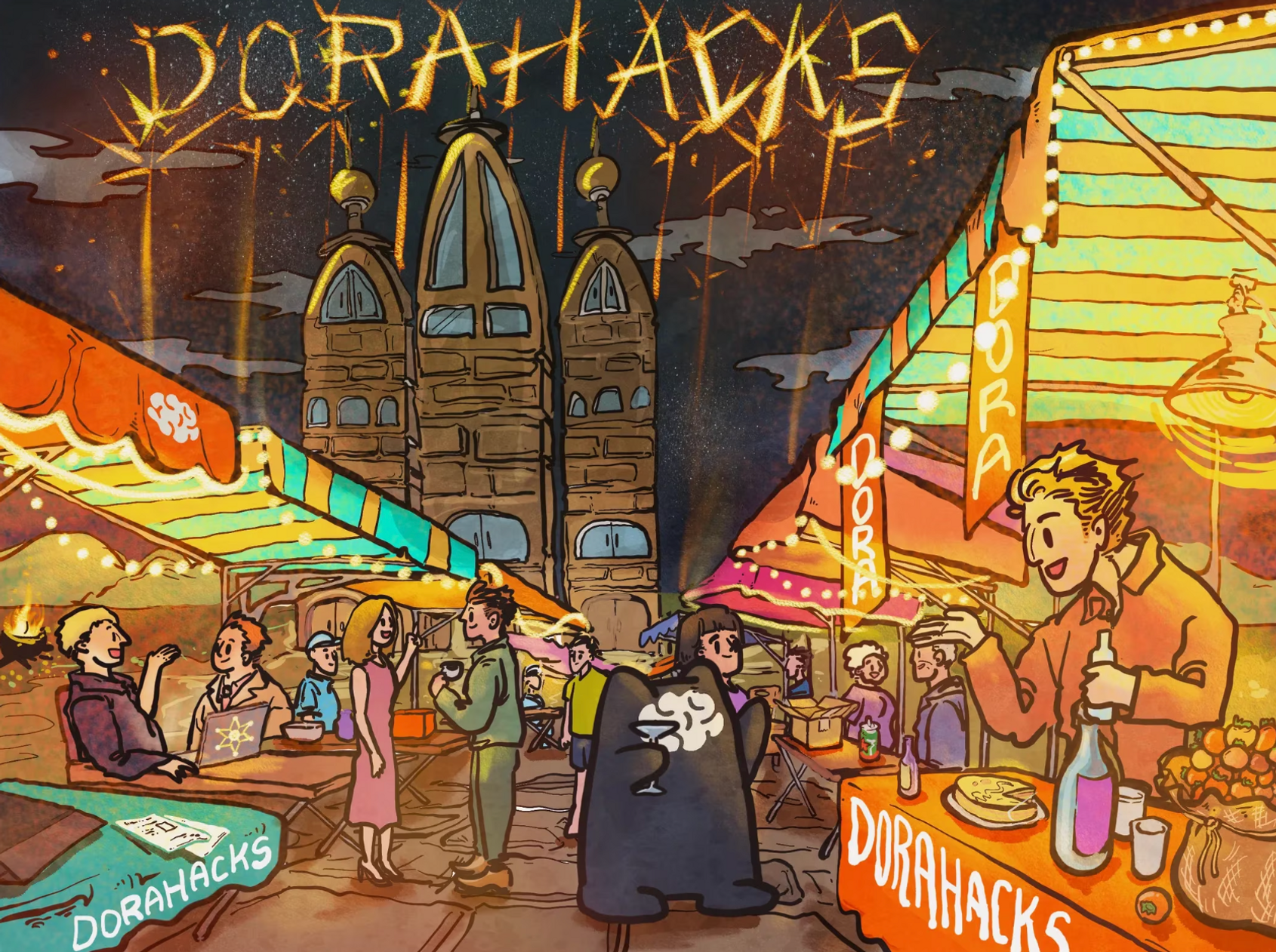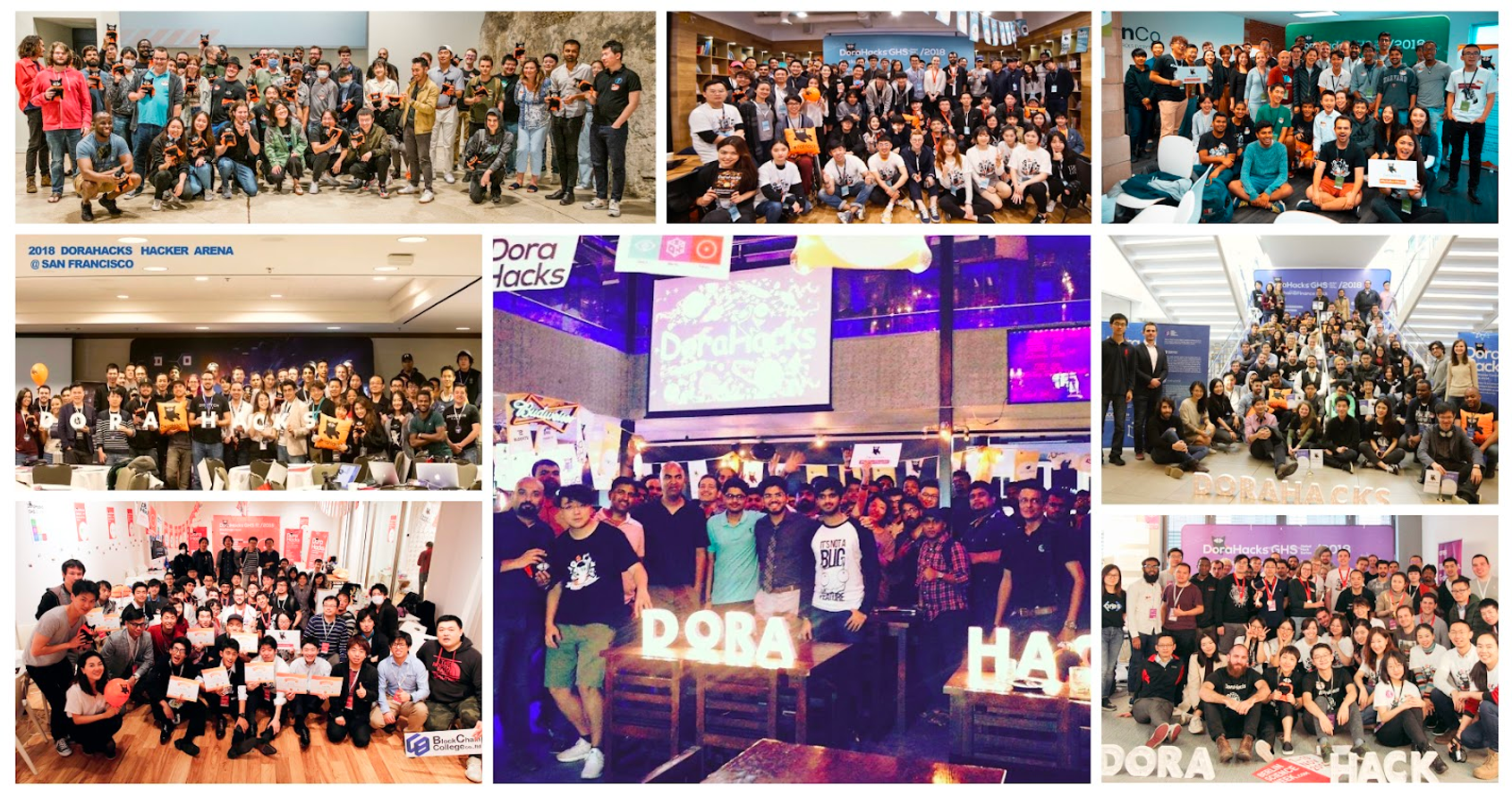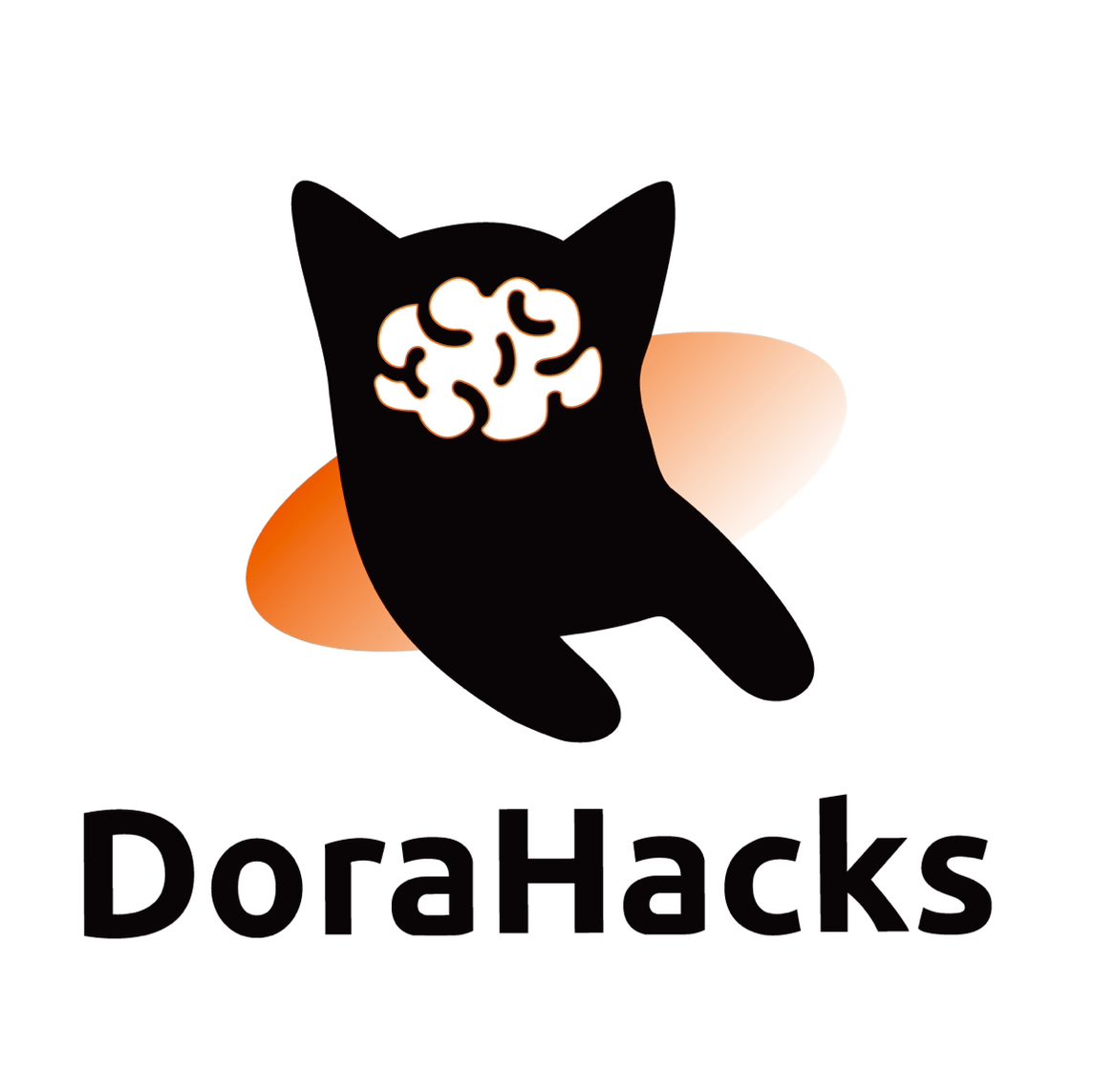CoinDesk Interview with DoraHacks: The "Open Source Market" Model Promoting Web3 Innovation

Over a nine-year span, DoraHacks has helped over 4,000 projects secure over $30 million in funding, making it one of the world's leading hackathon organizers and most active multi-chain Web3 development platforms.
The CoinDesk team recently interviewed Steve Ngok, a partner at DoraHacks, to learn about his story behind geek culture and Web3 development platforms, as well as the efforts made by DoraHacks in advancing cutting-edge technology and Web3 development, and establishing an "open source marketplace" for developers and startups worldwide.
How Did DoraHacks Begin?
The story of DoraHacks dates back to 2014 when our founder Eric Zhang graduated from the University of Oxford. Prior to that, he had organized a successful Webfest hackathon at CERN (European Organization for Nuclear Research). During his time at Oxford, Eric utilized a quantum physics-inspired method invented by his thesis advisor to study natural language structure. Eric has a background in computer science and engineering and frequently participated in hackathons while in school. He would often participate or assist in organizing small-scale hackathons involving university students and junior researchers, which focused on very specific products or themes.
In a hackathon, you have to spend 24 to 48 hours creating a product that you truly want to build. To finish the product before the deadline, you cannot waste time sleeping and need to stay up for one or two nights. Some hackathons are just for fun, but others have a more competitive aspect.
Upon returning to Asia, Eric met with local communities as well as friends from Tsinghua University. Through these interactions, he realized that there weren't many people in Asia who were familiar with this hackathon culture. The geek movement was not well-known in Asia at the time. So, he thought, why not do something about it?
In November 2014, Eric collaborated with the co-founder of the University of Michigan Hackathon and several other partners to organize the first edition of "THacks," a hackathon for university students held at Tsinghua University. After organizing THacks, Eric wanted to establish a lasting geek community in Asia, leading to the creation of DoraHacks.
At that time, DoraHacks was a small hackathon community, focused on organizing weekend exchange events and workshops, not only involving blockchain, but also other cutting-edge technologies at that time, such as cloud computing, Internet of Things, and space technology.
From 2014 to 2017, DoraHacks expanded its activities and began organizing hackathons in various parts of Asia, gradually becoming one of the largest hackathon organizers and geek communities in the world.
That's when I joined DoraHacks.
Why did you join DoraHacks?
I studied economics and finance in college. When I joined DoraHacks, I was a senior and was planning to become a lawyer in the future. I started taking JD (Juris Doctor) courses and took the LSAT exam. I was admitted to several universities and was preparing to go to the United States to study JD.
Later, I happened to come across DoraHacks. They organized a blockchain hackathon in Beijing in January 2018. I was very interested in what DoraHacks was doing.
I started to interact and communicate with these groups that I had never really understood before. They could write a smart contract in 24 hours. Some hackers turned an iPhone into a game controller and played games on the computer. Some used artificial intelligence and computers to monitor and identify criminals' body postures on cameras. They could write these programs in just 24 hours. What they were doing was truly amazing!
In addition, I learned about DoraHacks' bigger vision. They wanted to connect the global geek network, build a geek community, actively contribute to the geek movement, and drive the development of cutting-edge technologies.
I believe that cutting-edge technologies can change everyone's lives. Just like how cryptocurrencies have changed the lives of many people in developing countries around the world. Similarly, imagine that quantum, space, and fusion technologies can also change our lives in the near future.
Therefore, I postponed my JD courses and eventually turned down all the admission offers, staying full-time at DoraHacks. This has been the sixth year.
Since joining, I have gone from team operations to marketing, and now I am a partner leading most of our partnerships and investment work. This experience has been truly amazing.
While I was growing, DoraHacks was also growing and developing step by step. From a very small hacker organization at the beginning to one of the largest and most active hackathon organizers, as well as one of the most influential developer incentive platforms. Nowadays, DoraHacks has hosted more than half of the Web3 hackathons.

I find that geek culture seems to have a kind of magic that is hard for people to resist and is very appealing
Yes, absolutely correct. I believe the reason I joined DoraHacks is because I personally really like and believe in this culture, geek culture or geek movement.
It has been a very fulfilling journey.
What is the appeal of geek culture compared to traditional development? Why do geeks choose to build on Web3 instead of Web2?
Eric Raymond wrote a book called The Cathedral and the Bazaar. He compared large companies that develop their products in a closed-source manner to cathedrals. They have a lot of capital to develop their products and use the software and products they build to monetize.
On the other hand, the geek community or open-source developer community is like a bazaar. It's a bit chaotic, but regardless of background, even if you're a grassroots developer, everyone can contribute to the product. Even contributions from external developers can help iterate on their products.
As Eric Raymond and many other hackers have said, compared to closed-source development, the "bazaar" is a model for iteratively creating and producing very powerful products. In the early days of cryptocurrency, we could already see the difference between open-source and closed-source models.
While IBM was building Hyperledger, Vitalik Buterin and the rest of the team were also building Ethereum. Looking back now, I can definitely say that Ethereum and other open-source blockchains have been more successful compared to Hyperledger. The reason Ethereum succeeded is because it is open-source. It is an open ecosystem where every developer can build on top of it. That's what makes Web3 or blockchain very suitable for this geek culture. We have been trying to host hackathons on other technology stacks like cloud technology, IoT, and AI. But most of those technology stacks are not conducive to this development style because the barrier to entry is too high for anyone to build very innovative products on top of them.
In other fields, it is actually very difficult to build projects because innovations outside the Web3 ecosystem often require capital-intensive hardware and many other factors to make their products more successful than those built by large companies. Blockchain is currently the most open-source and developer-friendly technology stack.
When I joined DoraHacks, we decided to transition to cryptocurrency and blockchain. This is actually a trend we observed in hackathons. We have held various multi-purpose, cross-industry hackathons where developers are not limited to specific technology stacks. However, about 90% of them will use some kind of blockchain infrastructure because learning languages like Solidity or Rust is easy for them. They can quickly build a product in less than 40 hours or even 20 hours, and that product can immediately support millions or even billions of dollars.
If the core of hacker culture and Web3 is open source, how does DoraHacks promote the open source movement?
Most of the partners we encounter in cryptocurrency or blockchain ecosystems like Ethereum and Cosmos are building open source projects from scratch. When you observe these ecosystems, you will find that almost all applications are built by community developers, and there are not many large companies involved in construction and contribution.
Ethereum, Cosmos, and other similar open source blockchains create an environment where we are more likely to provide value and receive community support. From a partnership perspective, we tend to work with these open source ecosystems.
From a developer's point of view, we don't actually require developers to open source their code. But we found that open source projects - which are open to hackathon judges, us, other developers, and the community - have a better chance of winning these hackathons and receiving funding from us or the various foundations we cooperate with.
I also found that open source projects are more likely to receive contributions and iterate from developers in the ecosystem community because they can receive very good feedback from the community during or after the hackathon. These feedback experiences are very meaningful for improving code and building products. If the project is open source, developers interested in building a specific project can also learn from previous hackathons and even have the opportunity to build a stronger team and become a leading project in a category.
With more positive feedback loops between open source code, more hackers choose to build products on it, and these geek communities are growing stronger because of the powerful open source availability.
In other words, because of the positive feedback loop of open source code, each hackathon continues to bring better and updated projects.
Exactly.
The core spirit of the geek movement is to avoid unnecessary repetition, and I think that's one of the reasons why we can become a leading geek platform. Just like we don't want to see ten iterations of the same product in one ecosystem. We want developers to develop new products.
The core idea of the hacker movement is that we dislike "reinventing the wheel," and I believe this is one reason why we have become a leading platform in the hacker community. For example, we don't want to see ten iterations of the same product in one ecosystem; we want developers to create new products.
From 2020 to 2021, there were about 15 lending protocols in the Solana Hackathon, but I believe only two or three survived and became core projects of Solana. We strongly support open-source code because it allows developers to intuitively understand what other developers are building and enables them to build something similar yet ten times better than existing solutions.
We recently supported a startup that developed a smart contract library. You can find their open-source code in their products, from NFT markets to derivative trading platforms similar to GMX. You can search for code repositories and download them to see if they align with your project. This project fully aligns with our values of open-source and forward-thinking development, so we decided to provide a small amount of funding from our sponsorship pool to support them.
Avoiding unnecessary repetition is important for us. Especially when you participate in these large competitions, everyone is building something new, so you don't have to start from scratch every time. You can iterate on an idea or learn about existing ideas and build something new. You will get even more interesting or even crazy ideas based on the foundation of already interesting projects.
Does this positive feedback loop often occur in hackathons in different ecosystems?
Since the emergence of various Layer-1 solutions from 2017 to 2018, we have been collaborating with many different Web3 ecosystems. The main idea in the blockchain world at that time was, "How do we compete with Ethereum?" This L1 battle has been ongoing among monolithic blockchains such as Ethereum, Solana, Avalanche, and the latest batch of monolithic networks like Aptos, Sui, and Monad. In addition, various application chains (Appchains) with high-quality infrastructure have made the blockchain ecosystem more user-friendly than ever before, and applications are more diverse.
To participate in the DoraHacks Hackathon, you need to draft an idea list so that your team, other hackers, and judges can see your vision within a specific ecosystem. We are very willing to work with different ecosystems to make their development more complete. We want to ensure that these new ecosystems have the necessary infrastructure for development, such as PancakeSwap on the BNB Chain or Trade Joe on Avalanche. Only when the blockchain ecosystem supports and launches these specialized features will developers have more novel construction ideas.
In general, we emphasize to our partners the importance of achieving differentiation. If there is already a matching order book on Solana (such as Serum) and a decentralized exchange (DEX), building the same things in different ecosystems will not make you better.
I believe the gaming sector is a suitable way for different L1s to achieve differentiation and promote differentiation within their ecosystems. Frankly, the hype around cryptocurrency games in the past was driven by the "Play-to-Earn" trend during bull markets, but this is not sustainable. That's why many of the hottest games in 2021 are no longer doing well, because their models are not sustainable.
Currently, many of our partners are also working with excellent game studios or large game companies to create AAA games that focus on the gaming experience rather than tokens. In-game purchases and blockchain technology still exist, but the user experience is hundreds of times better on a game-centric single blockchain.
What interesting projects have we not really seen in the market at today's hackathons?
This situation has been ongoing and there are many such projects. Many developers participate in hackathons on DoraHacks.io.
One example that comes to mind right now is hackers developing better ways for multi-chain asset management. Currently, you can store your money in Metamask or Gnosis wallets, but it's not very user-friendly or intuitive. New cryptocurrency users struggle to understand how to move assets across different chains. Furthermore, cross-chain bridges are also difficult to use, which is not very secure for regular or new users.
So all in all, the entire cryptocurrency industry is moving towards better user interfaces, better user experiences, and more solutions that cater to the social needs of regular users.
In general, what do you think is one of the biggest opportunities DoraHacks provides for the geek community?
I believe our biggest mission in the geek and open-source community is to connect hackers, developers, and key resources, so that they can better focus on building products. Like other OGs in this field, I believe that in cryptocurrency, the most important thing is not the tokens, but the products and the teams that build them. Therefore, we hope to address this problem in a way that best supports developers and is more direct.
We hope that developers no longer need to worry about how to raise funds, obtain sponsorship, or recruit good teammates. To achieve this, we have created a hackathon and developer incentive platform DoraHacks.io, which encompasses all the necessary functionalities for a team and allows developers of all types to participate in hackathons immediately. Currently, there are 15 to 20 hackathons happening simultaneously. Even in a bear market, participants can still obtain funding, which is fantastic.
DoraHacks provides developers with hundreds of thousands of dollars in funding each month, with no admission criteria. Developers with good ideas and projects can join in. They can build ideas on a small scale, and these ideas can be further implemented through the grant infrastructure we have created to obtain funding.
We have established a robust funding and community governance mechanism, such as quadratic financing, similar to the concept proposed by Vitalik Buterin in 2019, but the quadratic financing technology we have built can be applied to different blockchain ecosystems such as Aptos, Solana, Polygon, etc. We have solved many problems with quadratic financing, and the tool has become more robust and efficient through multiple uses. Additionally, Dora's on-chain bounties are widely used infrastructure that provides rewards for various task requirements, such as translating documents or discovering bugs.
Over the past few years, we have distributed approximately 30 million dollars in grants and hackathon prizes (not investments, purely grants) to over 4,000 teams in the Web3 ecosystem, and these teams are currently playing a very important role in the ecosystem.

The core value of the DoraHacks platform is that we provide infrastructure and tools that not only facilitate "developing" new concepts but also drive everyone to "create" new ideas. We have really spent a lot of time thinking and developing DoraHacks.io, and I would like to emphasize one very good feature: "Ideas". Based on the concept of "Inspire to Build," we have launched this cool feature. Anyone can share their ideas with the community and openly discuss them with other interested developers and hackers. We hope to help inspire everyone and build the most groundbreaking ideas.
Assuming you are a hacker in the cutting-edge technology field, you have an idea to enable people to fly from New York to Paris in 10 minutes. You may not know who else is thinking about this or even close to solving this problem, but through Ideas, you can connect with hackers who are looking for solutions to similar or related problems. In addition, the Idea platform also hosts fascinating discussions on how to decentralize existing systems, such as launching a more decentralized roll-up than our current sorter.
What I want to say is that DoraHacks is committed to creating such an "open-source marketplace," where there is a vast global marketplace and everyone has the opportunity to become a hacker. Global hackers and BUIDLers! We will provide you with the most reliable support! DoraHacks will continue to support the global open-source movement and collaborate with everyone in the field to drive the development of cutting-edge technologies now and in the future.
As a global hackathon organizer and Web3 development platform, DoraHacks is committed to supporting the global geek movement. Unlike companies that follow the closed-source "cathedral" approach, DoraHacks aims to create an "open-source marketplace" for cutting-edge technologies. DoraHacks constantly connects developers in various cutting-edge technology fields, providing resources for product development teams to enable them to focus on technology and growth. DoraHacks will continue to drive global geek culture and the development of Web3 technologies, shaping an innovative future.



